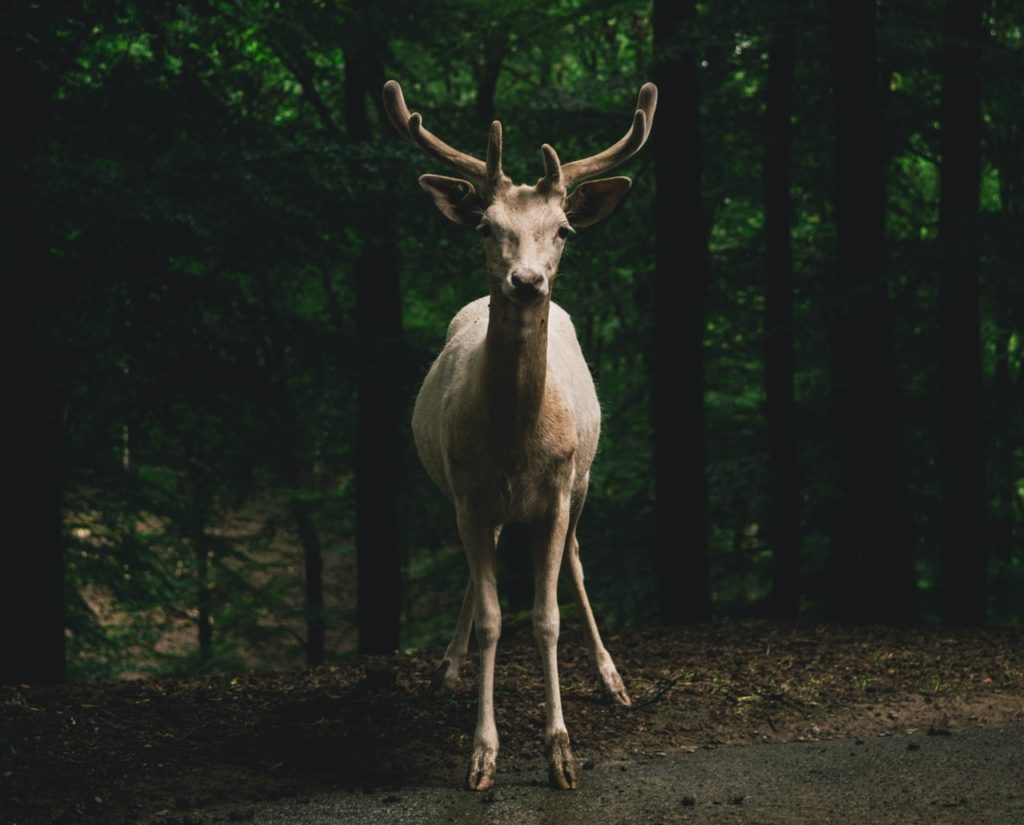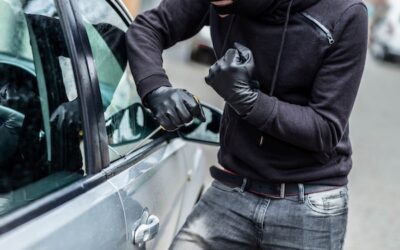Deer aren’t as common in the UK as they are in other countries. But in certain rural areas and at certain times of year, it’s still possible to see deer roaming near roads.

Indeed, there are up to 1.5 million wild deer in the UK. Those deer warning signs exist for a reason!
What to Do If You Hit a Deer: Immediate Safety
Most accidents involving deer happen absolutely without warning. One second the road’s clear, the next second there’s a deer looming in front of you. It probably came as a massive shock to you, so it’s only natural to feel shaken. So before you do anything else, take some deep breaths and compose yourself.
- First, you need to calm down.
- Next, your priority is to stop somewhere safe. Pull over and put your hazard lights on.
- Now call the police. This isn’t a legal requirement, like it would be if you hit a dog. But the police will be able to find someone who could help the injured deer – or in any case, remove it from the road.
Contacting the police could also work in your favour should you choose to make a claim on your insurance as a result of the accident. The police will log your call, and this could act as evidence to support your claim. And to that end, if it’s safe to do so, take some pictures of any damage to your car, and of the deer.
What to Do After You’ve Hit a Deer: Your Car & Insurance
Deer can be big and heavy. That’s why they pose such a risk to motorists. If you hit a deer, your car could be a write-off.
Now you’ve dealt with the immediate impact and safety, next:
- If your car is significantly damaged, you may have to call a recovery service after you’ve called the police.
- If your car only has superficial damage, it’s still a good idea to get your car to the garage as soon as possible. The deer may have damaged your car in ways that aren’t immediately obvious. It’s best to make sure.
- Finally, you need to tell your insurer – even if you don’t intend to make a claim on your policy.
Most insurance policies stipulate that you need to tell your insurers every time you’re involved in any sort of accident whether you are a young driver or an experienced driver. If you fail to tell your insurer, it could invalidate your policy.
For more information, please consult your policy wording.
How to Avoid Hitting Deer – General Tips
- Learn to understand the risk: Most accidents happen in May, October and November. Accidents are more common at sunrise, and in the hours between sunset and midnight.
- Be vigilant in deer hotspots: You’ll find wild deer in most parts of the UK, but they’re particularly common around Thetford Forest, Ashdown Forest, Ashridge Forest, the Forest of Dean, and in rural areas between Southampton and Portsmouth.
- Look out for the deer or wild animal warning signs: These signs mean one thing – slow down! When you see one, drive as if a deer encounter’s inevitable.
- Use your headlights: When it’s dark, switch to full beam (apart from when there are other drivers approaching). This could be enough to warn deer of your approach. But if you see a deer, switch to dipped headlights. Full beam could dazzle them, causing them to freeze.
- Take it easy: If you see a deer in the road ahead of you, stay calm. Don’t swerve excessively to avoid them. Deer are unpredictable, and they just might leap into your path again. And also, you could accidentally swerve into an even greater hazard. Instead, reduce your speed and stay on your current path. So long as it’s not dazzled by your headlights, the deer should recognise the danger and leap to avoid you.



